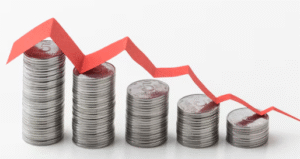$ATAI $CMPS $MNMD
#Psychedelics #MentalHealth #Biotech #Healthcare #Pharmaceuticals #MentalHealthSupport #ClinicalTrials #FDAApproval #DrugDevelopment #InvestorNews #MentalHealthCrisis #Innovation
Global demand for psychedelic drugs is projected to rise sharply, with the market expected to hit $10.2 billion by 2028. This explosive growth is attributed to escalating mental health crises worldwide, as well as an increasing body of research demonstrating the efficacy of psychedelic compounds like psilocybin and MDMA for treatment-resistant conditions such as depression, PTSD, and anxiety. With mental health problems claiming more attention amid a global pandemic fallout, traditional antidepressants or anxiolytics appear insufficient for some patients. Psychedelics represent a potentially revolutionary approach to mental health therapy precisely because these substances target the root causes of emotional distress rather than just mitigating symptoms.
Another key driver for the booming market is a growing wave of favorable regulatory developments in multiple countries. For example, Oregon’s legalization of psilocybin under regulated circumstances in 2020 represents a massive step forward. In the U.S., clinical trials of psychedelic drugs continue to advance, with companies like Compass Pathways ($CMPS), ATAI Life Sciences ($ATAI), and MindMed ($MNMD) conducting research that’s moving some drugs closer to FDA approval. Additionally, Canada’s “Special Access Program” allows physicians to request the use of restricted drugs (including psychedelics) under certain circumstances, giving companies in this space more room to innovate. This positive regulatory trajectory indicates that the commercial landscape for psychedelics is not only evolving but also setting the stage for higher industry acceptance and broader adoption.
The therapeutic promise of psychedelics is also drawing the attention of major investors. Top biopharma companies, along with venture capital funds, are increasingly backing psychedelic research in an effort to leverage these treatments for lucrative gains as mental health tools. While medical cannabis set a precedent for alternative treatments becoming mainstream, psychedelics are gaining notoriety for targeting severe conditions with limited or no treatment options. With industry heavyweights pushing forward and mainstream media highlighting the urgency of finding effective therapies, the psychedelic drugs market is poised to become a multidimensional sector encompassing treatment initiatives, research funding, and clinical applications over the next three to five years.
Despite some remaining societal stigma and ambiguity around long-term use, psychedelic drug development appears on track to make substantial contributions to public health. The combination of multi-million dollar investments, rigorous clinical trials, increasing public acceptance, and major policy shifts are all propelling the industry toward legitimization. As governments across the world acknowledge the critical need for better mental health interventions, psychedelics may ultimately transform the way mental disorders are treated—leading both to increased quality of life for those affected and substantial economic opportunities for investors.










Comments are closed.